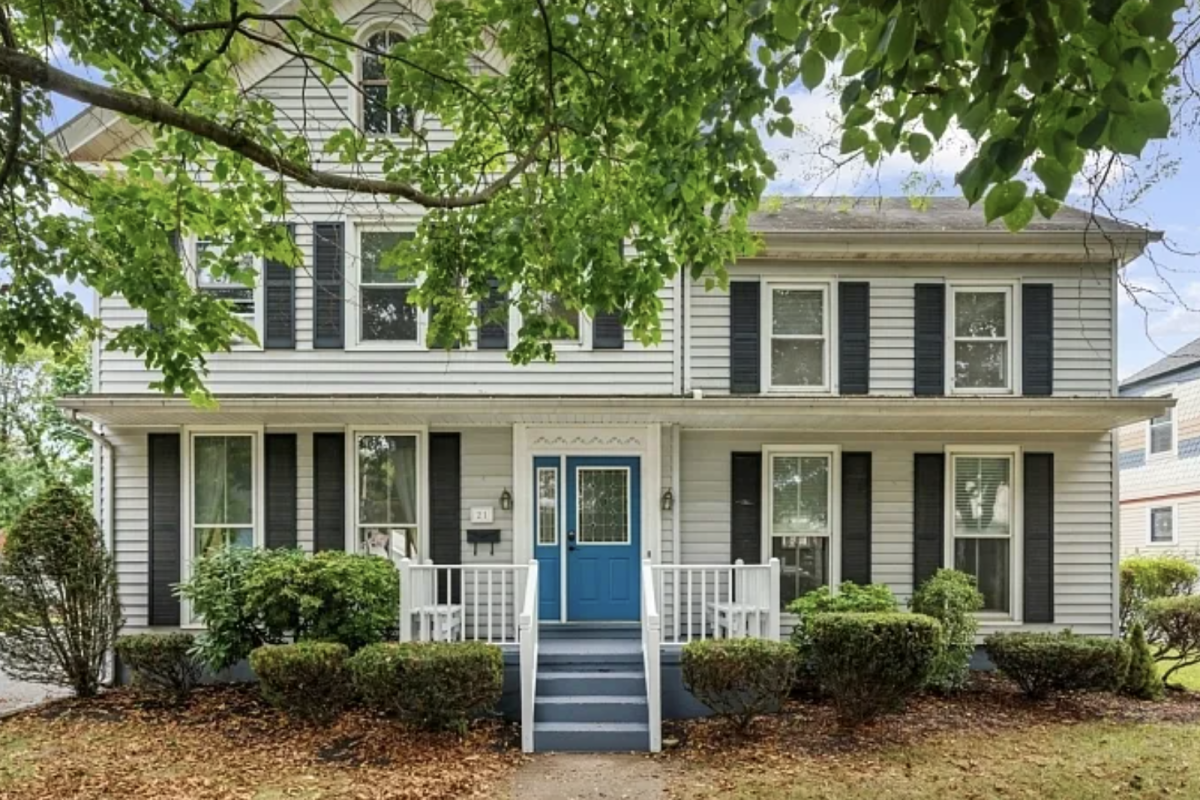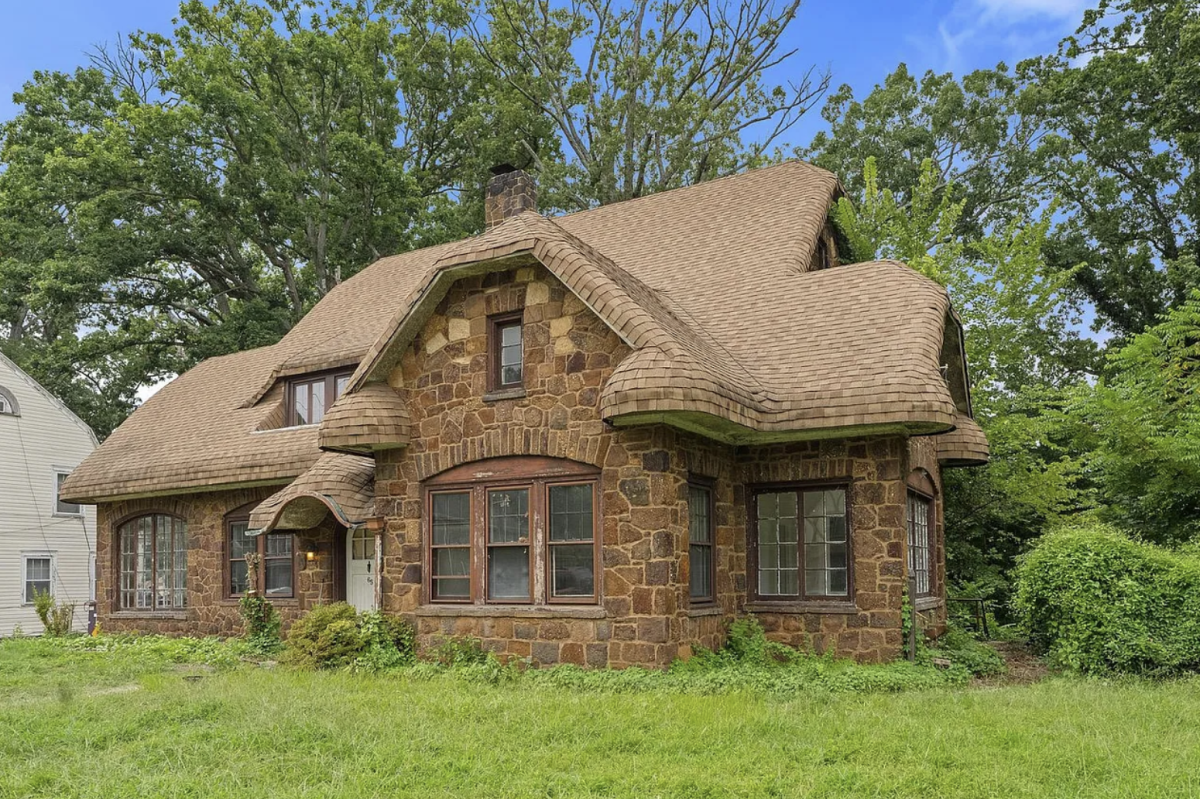Foreclosure can feel overwhelming, and you might be asking, can I sell my house in foreclosure in New Jersey? The answer is yes—homeowners in Hamilton Township still have options even when facing foreclosure. This guide explains your choices in simple terms, helping you understand what to expect and how to protect your finances.
We believe having the right information can ease some of the stress during this tough time. In the following sections, you'll find clear steps and honest advice on selling your home while dealing with foreclosure, so you can make a decision that works best for you.

Understanding Foreclosure in New Jersey
What Is Repossession and How Does It Work in New Jersey?
Foreclosure is a legal process designed to help creditors recover unpaid mortgage debt.
In New Jersey, this process usually adheres to a fixed schedule in which homeowners receive notice and have a chance to work out a solution prior to the sale of the property.
In Hamilton Township, NJ, homeowners have specific rights that protect them during this time, ensuring they grasp the proceedings and can act to minimize further financial pressure..
Often, the repossession procedure in Hamilton Township and cities like Bordentown, Burlington, and Cherry Hill starts upon missed payments.
Homeowners generally have several months for discussing their options, which include repayment plans and short sales.
This structured timeline offers a period to consult experts in law or finance who are familiar with New Jersey’s foreclosure laws.
Ways in which Foreclosure Affects Homeowners in Hamilton Township
The process of foreclosure can have serious effects on the financial record of a homeowner. Failing to pay the mortgage or undergoing foreclosure can decrease credit scores and complicate obtaining future loans. Moreover, the heavy emotional toll and the strain of public financial setbacks can be immense. It is important for homeowners in Hamilton Township and surrounding areas like Ewing, Florence, and Lawrence to tackle these issues promptly by exploring all available options.
It is advisable for homeowners to consult a housing counselor or legal professional who can take a closer look at their unique situation. By being proactive, many find that there are steps they can take to mitigate financial setbacks and prepare for a more stable future after their property is disposed of or resolved. Learning about homeowner rights and the foreclosure process can also avoid confusions and assist in making well-informed choices.
Selling a House Amid Foreclosure in Hamilton Township, NJ
Is Selling a House in Foreclosure Feasible?
Certainly, you can sell your house even when facing foreclosure.
Homeowners in Hamilton Township, NJ, can market their home before the foreclosure process finishes, which might safeguard their credit score and minimize financial losses.
However, listing your home in such situations comes with challenges such as handling unpaid debts, ensuring lender approval, and sometimes modifying the selling price to reflect the condition of the property.
To put it simply, successful sales during foreclosure often rely on open dialogue with the lender.
For instance, in nearby areas like Mount Holly, Princeton, Trenton, and Willingboro, local agents experienced with distressed property sales can provide guidance on meeting lender requirements.
Understanding what lenders demand and developing a strong plan can increase the chances of a smooth sale even when under pressure.
Steps to Sell Your Foreclosure Property
Offloading a foreclosed home requires meticulous preparation.
First, make sure your home's documentation is organized.
This includes loan documents, title documents, and all notices received from the lender.
Modern real estate listings must reveal the foreclosure status so interested parties understand the condition.
The next step is to speak with your lender.
Discuss your options for clearing or resolving the outstanding balance on your mortgage.
Many homeowners in Hamilton Township and nearby Burlington/Cherry Hill have had success by arranging a short sale with lender consent.
Working with a real estate agent experienced in foreclosure sales can streamline this communication but also assists in marketing the property properly.
Here’s a simple checklist:
• Gather and examine all necessary documents
• Contact your lender about your options
• Partner with a real estate agent skilled in distressed properties
• Inform prospective buyers of the foreclosure status right away
Being open with buyers is crucial, as it helps set practical expectations about what they are purchasing.
Short Sales and Options to Avoid Foreclosure
How Does a Short Sale Work and What Is It?
A short sale happens when the home is sold for less than what is owed on the mortgage, pending lender approval. This option is distinct from a conventional sale because it involves a negotiation between the homeowner and the lender to approve a reduced payoff amount. In Hamilton Township and similar communities such as Cherry Hill or Trenton, homeowners might choose a short sale to avoid complete foreclosure proceedings.
During a brief sale, lenders assess the market value of the property and the homeowner’s financial situation before agreeing to the sale. While it might seem like a difficult process, many property owners discover that a short sale helps reduce the credit impact and prevent burdensome foreclosure proceedings. Research suggests that short sales can be a viable option for many, especially when assisted by experts familiar with New Jersey’s property market.
Other Alternatives to Avoid Foreclosure
Besides short sales, there are various other paths property owners can take to prevent foreclosure on their home.
One possibility is pursuing a loan modification.
This means working directly with the lender to adjust your loan conditions to suit other your present financial situation.
This option is worth exploring for homeowners in Hamilton Township, Bordentown, or Cherry Hill.
Another alternative is a deed in lieu of foreclosure, where a homeowner transfers property ownership back to the lender in return for forgiving the loan debt.
While these alternatives might not be perfect, they offer a chance to reduce the long-term financial impact of a foreclosure.
It is always sensible to consult with a housing counselor or legal advisor who comprehends New Jersey’s distinct environment when considering these options.
Regional Help and Guidance for Hamilton Township Homeowners
Where to Get Help Locally
Homeowners in Hamilton Township and neighboring cities such as Princeton, Willingboro, and Trenton can access local resources that provide assistance in challenging times.
Local government offices, home counseling services, and legal assistance groups offer assistance when dealing with foreclosure.
Such organizations assist in understanding your rights, handle paperwork, and determine the best way forward based on your situation.
Local housing counselors are invaluable when dealing with foreclosure challenges.
They can not only explain the specific steps you should consider but also link you with financial planning resources.
For instance, if you reside near Hamilton Township, like Cherry Hill or Burlington, contacting a local municipal office might steer you in the right direction for free or low-cost advice.
Collaborating with Real Estate Experts and Investors
You might also want to work with skilled professionals such as real estate agents or investors with demonstrated success in handling distressed properties.
Experienced agents know the nuances of selling foreclosed homes and can help bridge communication with your lender.
They can showcase your property's key selling points while keeping the process simple and clear.
When choosing an expert, it is important to choose someone who is well-known in the local market.
Seek out agents experienced in Hamilton Township, Ewing, or Mount Holly.
Check reviews and ask friends or neighbors for recommendations.
An experienced agent not only speeds up the process but also helps address potential challenges before they become larger issues.
Securing Your Financial Future Post-Foreclosure Sale
Impact on Credit and What Comes Next
Selling your property amid or before a foreclosure can impact your credit score, but the outcome largely depends on how the situation is view publisher site managed.
Both buyers and lenders pay close attention to the details of how a foreclosure or short sale is handled.
While a foreclosure might lower your credit score significantly, taking steps like working with professionals can lessen the negative impact.
Homeowners in Hamilton Township and nearby areas, such as Lawrence or Trenton, should be aware that timely communication with the lender is key.
Once the sale is complete, rebuilding your financial stability becomes the next important step.
The process might require a while, but beginning with a well-defined budget and consulting financial experts can facilitate credit recovery.
Consider these recommendations:
• Regularly check your credit report for errors
• Create a realistic monthly budget
• Consider speaking with a financial planner who understands local market conditions
The process might be challenging, but many homeowners have successfully rebuilt their credit after a foreclosure or short sale.
Maintaining open communication with financial professionals and taking small, consistent steps often leads to a stronger financial future.
Strategies to Rebuild Your Credit and Plan for Buying a Home Again
After a foreclosure sale, it’s important to actively work on improving your credit.
This might involve paying off existing debts, using credit responsibly, and monitoring changes in your credit score.
Over time, these small changes can help replace the financial setback with a plan for recovery.
According to financial advisors, setting defined goals and working on them incrementally, even at a slow pace, can be effective.
Planning for future homeownership involves setting realistic expectations and being patient.
Collaborating with local experts familiar with the distinct challenges in areas such as Hamilton Township, Burlington, or Cherry Hill is advantageous.
By creating a practical plan and adhering to a steady pace, many homeowners find that they can ultimately return to the property market with a stronger and more secure financial footing.

Maneuvering through the intricacies of disposing of a foreclosed property in New Jersey , particularly in Hamilton Township requires a solid understanding of foreclosure proceedings , other options such as short sales , and the importance of seeking local resources and support.
Effectively selling your property involves proactive communication with lenders, careful preparation of necessary documentation, and open communication with prospective buyers. Remember that rebuilding your financial future after a sale, whether through foreclosure or alternative methods is completely achievable with a thoughtful plan and persistent effort.
In the end, confronting foreclosure need not imply a complete loss of your financial stability.
By considering all alternatives and consulting with professionals, you can overcome these hardships and set the stage for improved prospects.
Understanding is strength; use the information provided to make informed decisions and gain mastery over your condition.
- Foreclosure Guidance in Hamilton Township, NJ: Contact Holly Nance Group for expert advice on selling your house during foreclosure.
- Distressed Property Sales in Burlington County: Holly Nance Group provides tailored real estate solutions for homeowners confronting foreclosure in Burlington and adjacent locales.
- Mercer County Short Sale Specialists: Rely on Holly Nance Group to manage the short sale procedure and discover the most favorable outcome for your finances.
- Connect with Local Real Estate Investors: Reach out to Holly Nance Group for linking up with trusted local property investors aiming to buy pre-foreclosure houses in Hamilton Township.
- Ewing Township Pre-Foreclosure Expert in NJ: Allow Holly Nance Group to support you in rapidly selling your home.